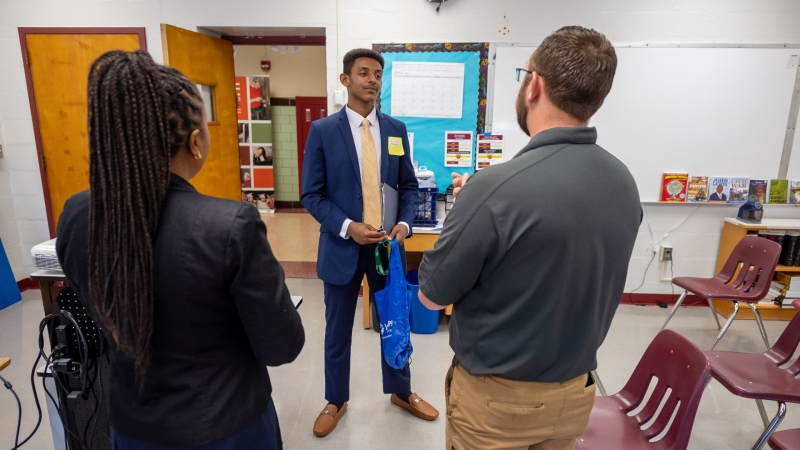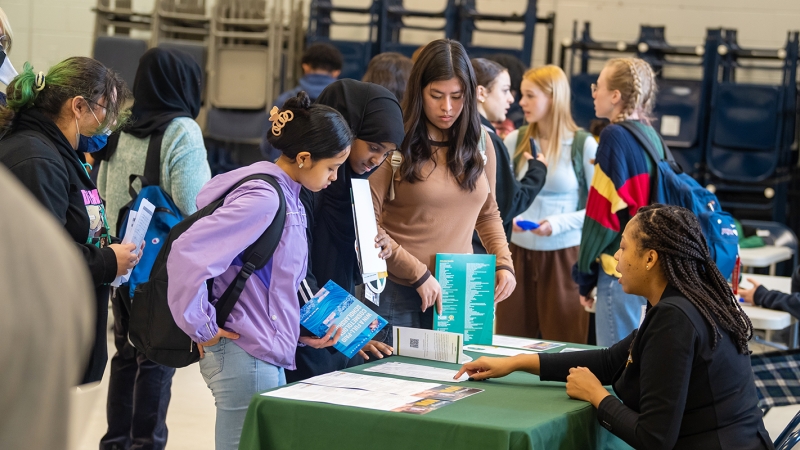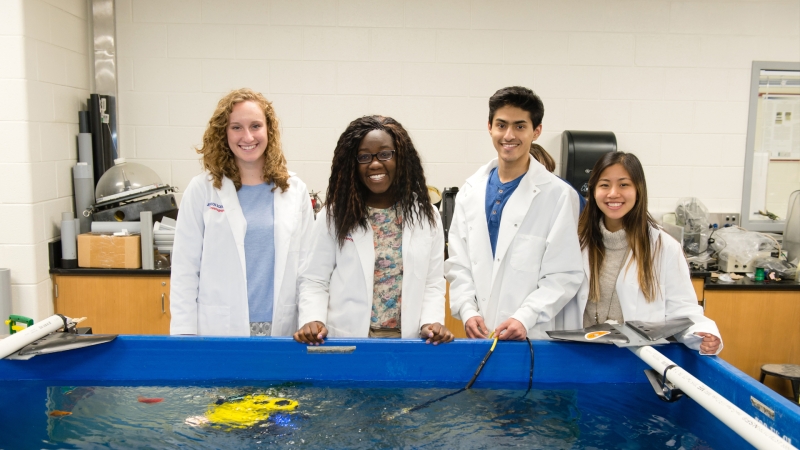
High-Quality Work Based Learning Internship Guide for Employers
Resources and guidance to support employers and schools
This guide brings together resources and guidance to support employers and schools planning to offer internships for high school students. This guide is an adaptation of the toolkit created by the Career Services department at the University of Missouri-Kansas City (PDF).
What is an internship?
The Virginia Department of Education defines an internship experience as a Work-Based Learning (WBL) experience that places the student in a real workplace environment. Students develop and practice career-related knowledge and skills for a specific career field related to their career interests, abilities, and goals. Meaningful and authentic connections are made to classroom learning and accompanied by structured reflection activities.
Internships are often viewed as culminating WBL experiences. Internships bring together experiences developed during previous awareness, exploration, and preparation activities, connect them to classroom curricula, and allow students to apply them on the job. An internship is a WBL opportunity in which a student spends an extended period of time (usually several weeks) working for an employer to explore interest in a career with the specific industry, occupation, and/or employer. In addition, the student has a chance to develop critical workplace and occupational skills. This “test drive” affords the student an opportunity to solidify future education and/or career path decisions. Students may even be eligible to earn academic credits.
Internships differ from other summer or part-time jobs in two significant respects. First, they include a detailed learning plan for the acquisition of specific foundational and transferable skills expected universally across industries and specific career skills integrated with the classroom curriculum. Secondly, student interns are supervised by both school staff and employees in the workplace before, during, and after the internships. The school-based internship coordinators help students prepare for their internships, make site visits, confer with interns and their workplace supervisors, assess and document progress on the learning plans, and convene periodic meetings with student interns for reflection and feedback. It is important to note that student interns should not fill positions that otherwise would be available to part- or full-time workers.
Why Internships?
For employers, internships provide an opportunity to extend the interview process and evaluate the student intern’s skills, work ethic, and assimilation into the culture before incurring the expense of bringing them on full-time. Internships help employers to build relationships with FCPS and to maintain a pipeline of skilled talent for future recruitment. Employers give back to the community by providing student interns a chance to learn new skills and obtain real-world experience, creating a qualified pool of candidates for the region.
For students, internships provide an opportunity to explore a particular career path or field of study and decide what path may be for them, hone their skills, and apply their academic knowledge. Internships are a way for students to obtain valuable real-world experience, gain specific field-related exposure and make important connections for the future.
Related Pages

The Basics: A Guide to Hiring Student Interns
The High-Quality Work-Based Learning Internship Guide provides employers with everything they need to consider when developing and implementing a high school internship program. Included in the guide are sections covering the basics of creating internship positions, the hiring process, management…

Legal Considerations You Need to Consider
This guide brings together resources and guidance to support employers and schools planning to offer internships for high school students. It is an adaptation of the toolkit created by the Career Services department at the University of Missouri-Kansas City.



